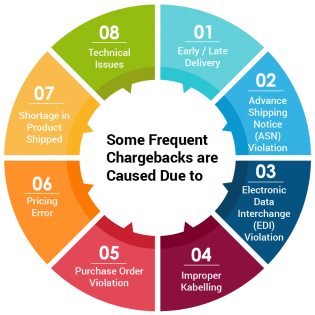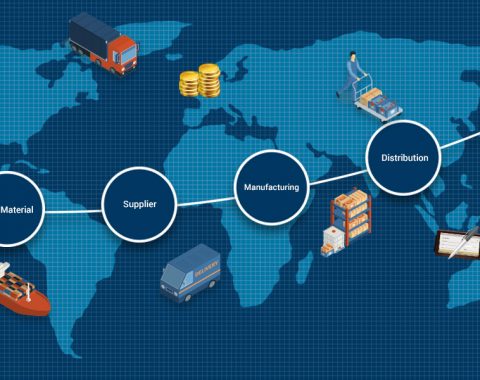Bain & Company, a global consultancy that helps the world’s most ambitious change-makers define the future in recent research said that companies with resilient supply chains can rapidly meet customers’ needs and grow even when market demand shifts. They increase their perfect order rate by 20% to 40%.
A resilient supply chain is a supply chain that has the ability to handle unexpected risk events. It has the ability to respond and bounce back quickly to potential disruptions. When a supply chain is resilient it can uphold financial performance and customer service levels. One of the key factors of a resilient supply chain is mitigating chargebacks.
What are Chargebacks?
Vendors procure inventory from suppliers. The inventory is procured usually against Purchase Orders (POs) which have information about the products ordered, quantity, delivery time, etc. When a supplier fails to fulfill the terms agreed on a PO, a chargeback is caused. It is because suppliers are making vendors spend more time dealing with an order, disrupting the supply chain and resulting in unnecessary costs.
To compensate for the vendor’s losses, chargebacks are imposed – a lose-lose situation for both the vendors and suppliers.
For big enterprises facing large volumes of chargebacks can affect their bottom-line performance and leave customers feeling dissatisfied/cheated. For startups, chargebacks can result in loss of sales/opportunities.
Why do Chargebacks Happen?
A chargeback can be caused due to incorrect labeling, poor packaging, late shipment delivery, wrong product type/model, incorrect order number, etc. When you experience chargebacks it basically means that the supply chain isn’t efficiently running.
Tracking down the cause of the chargeback can help companies manage it better. Sometimes, the cause is obvious but most often than not the cause is hidden in places you least expect to find it. The supply chain manager needs to be involved in monitoring chargebacks companywide, then planning and executing chargebacks defense strategies.
Defense Strategies to Reduce Chargebacks
At Royal Cyber we adopt three steps to reduce and combat chargebacks.
Discover
Tracking down the root causes of chargebacks.
Analyse
Engage data analytics to identify why a chargeback happened.
Tackle
Establish tools and processes to handle and reduce chargebacks.
Discover Phase
It is the first step to reducing chargebacks and improving supply chain management. Why? The Discover phase helps us identify the root cause of chargebacks. By understanding the root causes of chargebacks you can prevent them from occurring. If the root cause is not identified then you’re exposing yourself to recurring chargebacks and high chargeback penalties.
Implementing an artificial intelligence-driven root cause detection tool will benefit you most. It will not only identify the root cause but can also predict future success/failure rates. These predictive insights will allow you to focus on performance improvement initiatives at scale.
Analyse Phase
Applying analytics techniques will simplify collection and studying of data. It will piece together huge amounts of data and offer insights into your supply chain. This will help you figure out what happened with failed orders instead of what should have actually happened. Automation and data analytics involving both internal and external data sources will offer insights that you can action on immediately.
An added advantage is that having concrete numbers/data-at-hand will help you plan, set standard operating procedures (SOPs) and execute chargeback defense strategies. It will also enable you to prove the need for investments in new systems or processes, if necessary.
Tackle Phase
Manual tracking, analyzing and reducing chargeback can be exhausting and most cases impossible due to the sheer volume of orders, data formats and transactions. Adopting the right technology can reduce chargebacks. B2B integration and automation can streamline your supply chain and provide accurate order data.
B2B integration also upholds compliance and streamlines information sharing (document and data formats). It removes manual intervention of data entry and eliminates human typo errors. Thereby, reducing risk and chargebacks.
Additionally, companies will need to continuously educate those involved in order fulfillment on how to fill a PO as per specifications and highlight the importance of compliance.
You can maintain service levels and reduce chargebacks significantly
The three simple yet challenging steps that we have listed above can undoubtedly reduce chargebacks.
A point to note is that avoiding chargebacks 100% of the time is an unlikely prospect. By understanding the current chargebacks, by investing in the right systems, people, and processes they can be drastically reduced.



